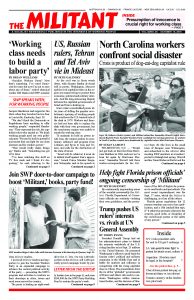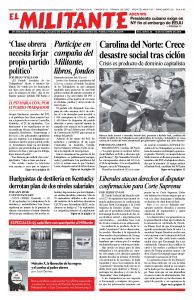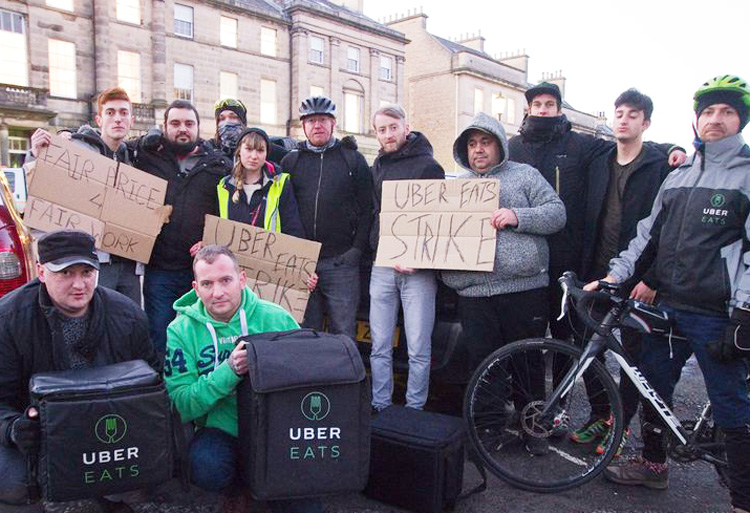Uber drivers in Australia, the United Kingdom and elsewhere have been organizing work stoppages and other protest actions over the last several weeks in response to bosses’ moves to cut pay and working conditions.
These drivers — as well as others at competing app-based services like Lyft, Uber Eats and Postmates — made 53 percent less last year than they did in 2013, JP Morgan Chase Institute reported. The monthly compensation for the drivers fell 47 percent in 2017, to an average of $783 per month.
Hundreds of Uber Eats couriers, who deliver food, halted deliveries and demonstrated outside the company’s U.K. headquarters in Aldgate East, Sept. 19 and 20. They were protesting big cuts in minimum delivery rates imposed by the bosses. The protesters then rallied outside Parliament.
“Riders said the minimum per-delivery rate had been reduced from £4.26 to £3.50 [$5.50 to $4.50],” said the Guardian, “and demanding a guaranteed minimum of £5 for London couriers.”
The protests build on other actions by Uber workers in the U.K., including earlier this year in Edinburgh, Scotland.
On Sept. 5 an international Uber “log-off” strike was organized, where drivers logged off the company’s app between 6 a.m. and 10 a.m. Drivers participated from Australia, New Zealand, the U.K. and parts of the U.S. The action was called by Ride Share Drivers United, based in Australia, which demands Uber “treat drivers in a fair, lawful and dignified manner.”
In Australia, this group organized over 10,000 Uber drivers to sign off their apps for two hours Aug. 22 in their second strike there in three weeks. Drivers from Melbourne, Sydney, Brisbane, Perth, Adelaide and Hobart participated. “Basically drivers are being shortchanged, almost every second ride,” Ride Share Drivers United spokesperson Max B. told Business Insider.
The app-based bosses and the official taxi companies try to protect their profits and pit their drivers against each other. They seek to prevent drivers from unionizing and fighting together to make gains for all.
Thousands of taxi drivers in Spain carried out six days of strikes and street blockages at the end of July until the government promised to sharply limit licenses for Uber, Cabify and other online ride services.
Today app-company drivers have 9,000 permits in Spain, compared to 70,000 for taxi drivers. Government officials said they will enact new regulations to limit app company licenses to one for every 30 taxi permits. This could lead to thousands of layoffs. Similar divisive steps have been taken by the city council in New York and are under consideration by authorities in London.


